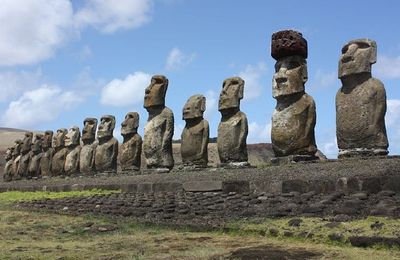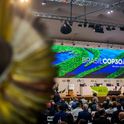A moment halfway through Ezra Klein’s and Derek Thompson’s recent book Abundance reveals something of their approach to building a net zero world. In 2023 a gasoline lorry exploded, causing Philadelphia’s I-95 bridge to collapse; Governor Josh Shapiro waived all the usual rules and regulations for public works so it could be rebuilt in record time. The project was of great benefit to the community. But during the works, the state secretary of transportation recalls encountering two workers using a screwdriver to remove a highway sign so it could be reused. “I said turn the machine on and knock the goddam thing over!” He chuckles, and Klein and Thompson invite us to chuckle along.
Abundance is an odd New York Times bestseller, filled largely with policy wonkery, focused on public-private partnerships and city zoning laws, and written in seemingly endless aphorisms (“Innovation can make impossible problems possible to solve, and policy can make impossible technologies possible to create”, etc). But it’s got people talking in environmental circles because of its take on environmental efficiency and “reduce, reuse”—as the highway sign story attests.
The authors believe in a greener, cleaner, renewable-energy-fuelled future, but one that allows for rapid, endless growth, surrounded by giant carbon capture towers and desalination plants to enable continued, abundant excess. The problem, say Klein and Thompson, isn’t that we’ve grown beyond our means and depleted the planet—it’s that we haven’t grown enough. (Keir Starmer might be a fan).
Critics such as Tony Dutzik at environmental thinktank Frontier Group rightly point out that Klein and Thompson have “misdiagnosed the disease. Scarcity is not, by and large, America’s problem. It is, rather, the problems that result from our abundance—the ecological impacts of a high-throughput consumer economy.”
Just a few years earlier, in 2017, UK economist Kate Raworth argued that there is an ecological ceiling to growth, and that if we go beyond it, on a finite planet with finite resources, there is no abundance to be had—except for the elite few.
In Doughnut Economics (a Sunday Times bestseller), she highlighted the nine planetary boundaries that scientists say maintain a stable and resilient Earth system. In 2015, four out of nine had been crossed. By 2023, six of these boundaries had been crossed: CO2, synthetic substances released into the environment, nitrogen and phosphorous load, freshwater, land use, and biodiversity. Raworth argues that we need to keep everything within the “green inner circle” of what planet Earth can actually support.
There is nothing inevitable or irretrievable about crossing any of the boundaries; one of the nine, “stratospheric ozone depletion”, was in the red in the 1980s, but fell back to the green centre of the doughnut following steps taken by the Montreal Protocol of 1987. Collective international action has been proven to work, once at least—just eight more to go.
Political economist Jason Hickel wrote in his 2020 book Less is More that capitalism must create artificial scarcity in order to make profit, but “with basic needs met, the compulsion for people to compete for ever-increasing productivity would wither away. The economy would produce less as a result, yes—but it would also need less. It would be smaller and yet nonetheless much more abundant.” GDP can shrink and material consumption decline while all other measures of wellbeing can rise, says Hickel, through such means as reclaiming the commons, universal healthcare, regenerative farming; in short, reducing waste and inequality means a better life for all, and a few less private planes for billionaires. In fact, no billionaires at all.
Klein and Thompson want us to have our doughnut and eat it. The economy has stagnated, they say, but a few policy tweaks and regulatory hurdles removed will get it fizzing again. It is the Tech Optimist viewpoint: abundant, limitless energy through nuclear fusion; AI as an energy saviour not an energy drain; oceans tamed and desalinated for drinking water.
I might have let the desalination thing go if it was just one throwaway line, but it’s mentioned several times throughout Abundance. The authors write longingly about “[g]igantic desalination facilities that transform our oceans into drinkable tap water”. But I know from researching my own book The Last Drop that a desalinated world is no utopia. Desalination typically produces 1.5 litres of waste, highly salty brine, for every one litre of drinking water. That waste is simply chucked back out to sea, increasing its salinity and killing off sea life. Parts of the Persian Gulf, surrounded by the worlds largest desalination plants, including in the UAE and Saudi Arabia, are now 25 per cent saltier than average seawater. The only life found near the plants are giant jellyfish that clog up the intake pipes. The tech bros want much more of this, not less.
Klein and Thompson also misread Hickel when they say that his book, and degrowth at large, demands “collective scarcity”. In Less is More, Hickel writes: “… in fact exactly the opposite is true. Austerity calls for scarcity in order to generate more growth. Degrowth calls for abundance in order to render growth unnecessary. If we are to avert climate breakdown, the environmentalism of the twenty-first century must articulate a new demand: a demand for radical abundance.” This could include universal basic income, free education and reduced working hours. If we all worked a four-day week for example, we may earn less (though some businesses have reported it leads to productivity improvements while salaries remained the same) but we have more time to spend with our family, with our community, in nature or immersing ourselves in culture. That is abundance.
Even some bankers are starting to cotton on to this. Hans Stegeman, chief economist at Triodos Bank, told the London Degrowth conference last November, that “the world-view that ‘progress’ is more income, more stuff in general. This is not a natural state… there are limits to growth. Continuing to grow as we do now is simply not sustainable and not necessary for our quality of life. If we do continue on the current course, then we will exhaust the Earth and ourselves along with it. Post-growth offers an alternative.”
The late Pope Francis’ climate encyclical “Laudato Sí” has also been read as a seminal degrowth text. “People’s quality of life actually diminishes,” wrote the Pontiff, “by the deterioration of the environment, the low quality of food or the depletion of resources—in the midst of economic growth. In this context, talk of sustainable growth usually becomes a way of distracting attention and offering excuses.” It is time, he wrote in 2015, to “think of containing growth by setting some reasonable limits and even retracing our steps before it is too late.”
Moving beyond our planet’s material boundaries is not leading us to abundance, but to our demise. Unfettered growth in the natural world is a cancer. We can build fast and furious, using up our remaining sand, wood, cement and ocean life, constructing our own Ozymandias statues to keep GDP ticking upwards. Or we can reduce, reuse and retune ourselves to natural cycles and sustainable consumption. We can reach for the screwdriver to reuse that sign, or we can gleefully bulldoze it into the dirt. I know which world I’d rather live in.














